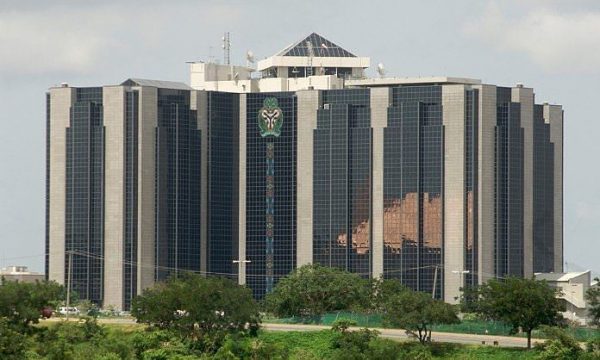Following reactions trailing a recent Central Bank of Nigeria directive to Deposit Money Banks (DMBs) to desist from cryptocurrencies transactions, the apex bank has clarified that the intention is to ensure accountability.
Making the clarification in a statement on the CBN official website, Osita Nwanisobi, the bank’s Acting Director of Communications, said the directive was not new but only a reminder of a 2017 directive to the same effect.
Nwasinobi added that the anonymous nature of cryptocurrencies justified such a directive to check financial crimes and other criminal activities.
He said: “The attention of the CBN has been drawn to various comments and reactions following our recent reminder to DMBs to desist from transacting in, and with entities dealing in cryptocurrencies.

“Most of these reactions reveal that there appears to be a need to provide further justifications about our position, especially to the general public.
“It is important to state that Cryptocurrencies are digital or virtual currencies issued by largely anonymous entities and secured by cryptography.
“Cryptography is a method of encrypting and hiding codes that prevent oversight, accountability and regulation.
“As regards our recent policy pronouncement, it is important to clarify that the CBN circular of February 5, 2021, did not place any new restrictions on cryptocurrencies.
“All banks in the country had earlier been forbidden, through CBN’s circular dated January 12, 2017, not to use, hold, trade and/or transact in cryptocurrencies.
“Indeed, this position was reiterated in another CBN Press Release dated February 27, 2018.”
Nwanibosi said the directive was not restricted to Nigeria as some other countries in the world had placed similar bans on cryptocurrencies.
He said: “It is also important to note that CBN’s position on cryptocurrencies is not an outlier as many countries, central banks, international financial institutions, and distinguished investors and economists have also warned against its use.
“They have all made similar pronouncements based on the significant risks that transacting in cryptocurrencies portend – risk of loss of investments, money laundering, terrorism financing, illicit fund flows and criminal activities.
“China, Canada, Taiwan, Indonesia, Algeria, Egypt, Morocco, Bolivia, Kyrgyzstan, Ecuador, Saudi Arabia, Jordan, Iran, Bangladesh, Nepal and Cambodia have all placed certain level of restrictions on financial institutions facilitating cryptocurrency transactions.
“In China, for example, cryptocurrencies are completely banned and all exchanges closed as well.
“Banks and other financial institutions are not allowed by law to transact or deal with cryptocurrencies.
“China’s Central Bank, called the Peoples Bank of China (PBoC), has provided several directives ruling out the use of these currencies.
“The PBOC views cryptocurrencies as illegal because they are not issued by any recognised monetary institution and do not hold any legal status that can make them equivalent to money.”
The Director emphasised that cryptocurrencies remained illegal in Nigeria because they were issued by entities that were neither licensed nor regulated.
Nwasinobi said: “In light of the fact that they are issued by unregulated and unlicensed entities, their use in Nigeria goes against the key mandates of the CBN, as enshrined in the CBN Act (2007), as the issuer of legal tender in Nigeria.
“In effect, the use of cryptocurrencies in Nigeria are a direct contravention of existing law.
“It is also important to highlight that there is a critical difference between a Central Bank issued Digital Currency and cryptocurrencies.
“While the Central Banks can issue Digital Currencies, cryptocurrencies are issued by unknown and unregulated entities.”

